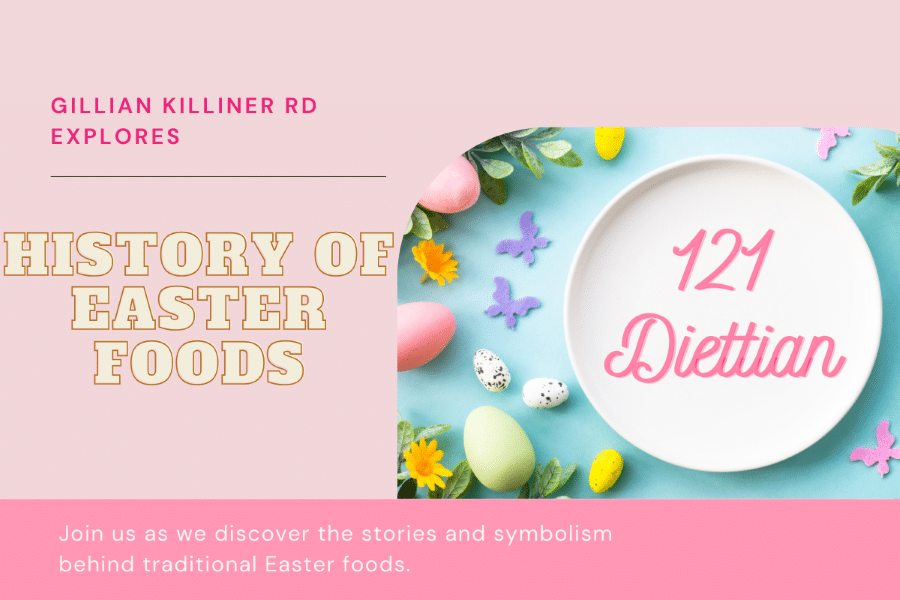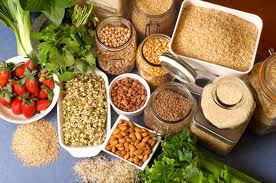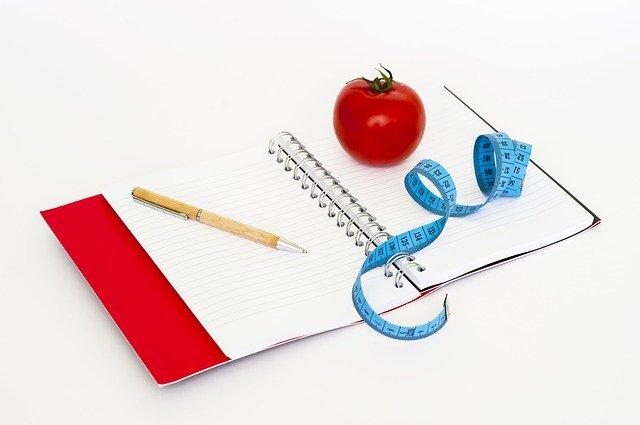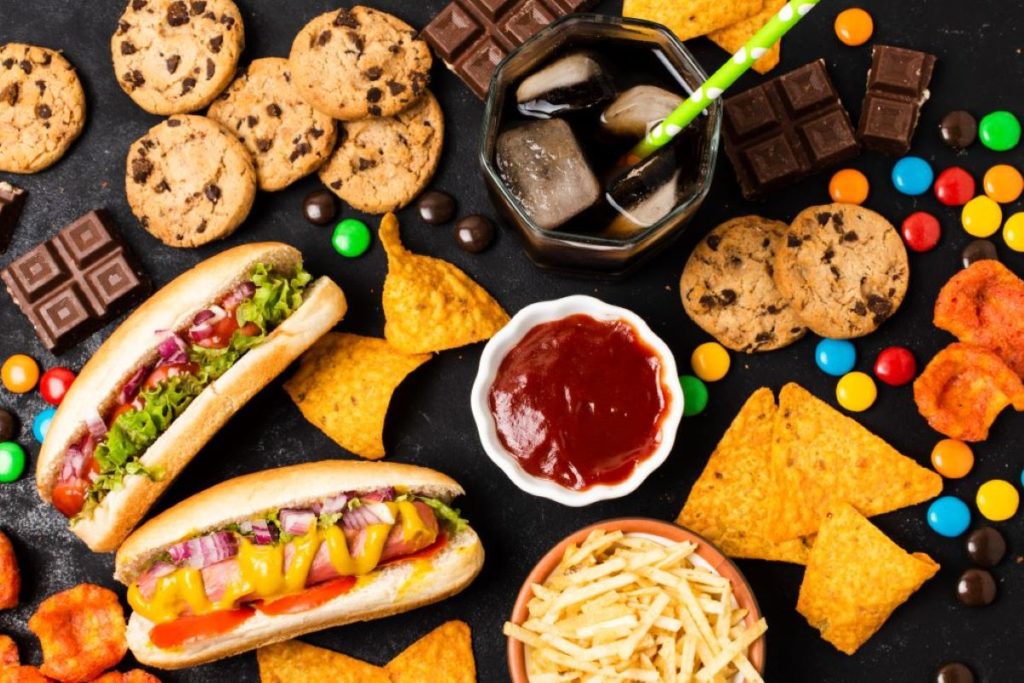Traditional Foods for Easter and Their Meanings

Traditional Foods for Easter and their meanings
Diet and Eyesight :The Vital Connection

Today, I am going to explore a topic that’s often overlooked: the relationship between Diet & Eyesight. It is so important and I can’t believe I haven’t talked about it before! Your eyes are a windows to your overall health and can really impact your quality of life if you find yourself with an eye related health problem. Welcome if you are new here to 121 Dietitian. I’m Gillian Killiner, founder of 121 Dietitian, and I have been writing blogs for many years on various topics alongside my clinical work. So hopefully you will find some information relevant or interesting to you. Understanding the Basics – Diet & Eyesight So what does the eye do? The human eye is a complex organ. It works like a camera by capturing and processing light, which is then transformed into visual information that our brain can understand. Its well-being relies on a variety of nutrients to function optimally. These nutrients can be obtained through a balanced diet, and they play a crucial role in maintaining good eyesight throughout your life. So lets look first at foods that could impact negatively on your eye health: 1. Sugary Drinks Sugary fizzy drinks, energy drinks, sweet tea, and lemonade, high fructose syrups. These beverages are often loaded with sugar, and excessive sugar consumption can increase your risk of developing type 2 diabetes and heart disease. These conditions, in turn, can lead to eye problems like diabetic retinopathy and age-related macular degeneration (AMD). Just to put things in perspective, a single soft drink can contain a whopping 37 grams of sugar! So, it’s wise to be mindful of how many sodas you consume daily. 2. Fish & Shellfish Fish and shellfish are generally considered healthy sources of protein and essential nutrients. However, they do contain small amounts of mercury. While this isn’t a major concern for most people, certain groups are more susceptible to health problems related to mercury exposure. This includes pregnant women, nursing mothers, and children. For these individuals, it’s recommended to limit fish intake to 2 portions per week to reduce the risk of eye damage. 3. Bread Products Bread products, such as white bread and pasta, are daily dietary staples for many of us. However, they contain simple carbohydrates that are digested quickly, leading to rapid spikes in blood sugar levels. This can contribute to chronic inflammation, a condition linked to AMD. If you’re worried about the impact of bread products on your eye health, consider limiting your consumption and exploring whole-grain alternatives. 4. Prepackaged Foods Prepackaged foods are convenient but often not healthy and frequently contain high levels of sodium, which can lead to high blood pressure. Elevated blood pressure, can damage your retina and result in a condition known as hypertensive retinopathy. To reduce your sodium intake, look for “low sodium” labels on canned goods, soups, and sauces when food shopping, but more importantly rethink the amount you use of these products and consider how you can cook with natural ingredients when possible. 5. Processed Meat Processed meats like bacon, deli meats, sausages are loved by many but can be high in sodium as well. Beyond contributing to hypertensive retinopathy, excessive sodium intake can cause choroidopathy, characterized by fluid buildup under the retina, and neuropathy, which can lead to blockages in blood flow. So the message here is to watch your salt and sugar intake as this can go a long way in preserving your eye health. So what can you eat instead? Thankfully there is an abundant variety of foods and fluids that can assist and nourish the eyes. Key Nutrients for Healthy Eyes Preventing Age-Related Eye Conditions: Consuming a diet rich in antioxidants, such as vitamins C and E, can help protect your eyes from the oxidative stress associated with aging and reduce the risk of cataracts and AMD. Maintaining Eye Moisture: Omega-3 fatty acids help keep your eyes moist and reduce the risk of dry eye syndrome, which can be uncomfortable and affect your vision. Enhancing Night Vision: Adequate intake of vitamin A ensures your eyes can adapt to low-light conditions, which is crucial for night vision. Shielding Against Harmful Light: Lutein, zeaxanthin, and beta-carotene act as natural filters, protecting your eyes from harmful ultraviolet (UV) and blue light. Promoting Eye Tissue Health: Nutrients like zinc support the health of eye tissues and may reduce the risk of conditions like macular degeneration. Conclusion – Diet & Eyesight Our eyes are invaluable, and protecting our vision should be an integral part of our daily life. A diet rich in the right nutrients can play a pivotal role in maintaining and safeguarding eyesight. By incorporating foods rich in vitamins A, C, E, omega-3 fatty acids, zinc, and carotenoids into your daily meals, you are investing in the long-term health of your eyes. At 121 Dietitian, we understand the importance of nutrition in promoting overall well-being, including eye health. If you’d like personalized guidance on optimizing your diet for better eyesight or any other nutritional concerns, don’t hesitate to reach out. Remember, a nutritious diet isn’t just about looking good; it’s about seeing the world around you safely for years to come. If you want to book your programme TODAY we would love to help you. You can book a 121 Dietitian Programme today by clicking on the link below CONTACT TODAY Vitamin A: This is perhaps the most well-known nutrient for eye health. Vitamin A helps maintain the health of your cornea, the outermost layer of your eye. A deficiency in vitamin A can lead to night blindness and other vision problems. Vitamin A is found as retinol in meats, dairy, eggs and Beta-carotene in fruits and vegetables. Vitamin C: Found in fruits and vegetables like oranges, strawberries, and bell peppers, vitamin C supports the blood vessels in your eyes and can help prevent cataracts and age-related macular degeneration (AMD). Vitamin E: Nuts, seeds, and leafy greens are rich sources of vitamin E, which is known for its antioxidant properties. Antioxidants
Constipation Relief

5 Evidence-Based Constipation Home Remedies by a Registered Dietitian Constipation is a common issue that affects one in five people following a Western diet. If you have ever suffered with this you will know how unpleasant the feeling is. Maybe you are currently suffering with ongoing constipation and are in need of some guidance, so please read on. I’m Gillian Killiner, a registered dietitian with 26 years of experience in helping thousands of individuals with their dietary and health needs. In this blog post, I share five evidence-based tips to assist with constipation. But first, let’s define constipation. What is Constipation? Constipation occurs when you haven’t had a bowel movement for more than three times in a week. You can assess your bowel movements by using a stool chart to evaluate consistency and type. Typically, constipated stools are hard, small lumps, or pebble-like Type 1 and 2. What is a normal bowel movement frequency as defined by the NHS? “It is normal to pass a stool everyday up to every 3 days; stools should be soft and easy to pass. You should not need to strain to pass a stool. Some people pass a stool once a day and some twice these are both normal.” So what factors in a Western diet contribute to constipation? Dietary Factors 1. Hydration for Constipation is Key One of the first and most crucial tips for relieving constipation is to stay adequately hydrated. Many people underestimate the importance of drinking enough fluids. It’s easy to forget to drink when we switch off our thirst receptors. To combat this, keep a drink, such as a glass or bottle of water, with you throughout the day. Aim for 1.5 litres minimum. You can also include herbal teas and coffee, but limit them to no more than four cups a day, and avoid making them overly strong. Excessive caffeine can contribute to dehydration, which worsens constipation. 2. Load Up on Fruits and Vegetables Consuming an ample amount of fruits and vegetables is another essential strategy for relieving constipation. Begin your day with a breakfast rich in vegetables or add fruits to your cereal. Incorporate fruits and vegetables into your meals and snacks as much as possible. Variety and color in your diet are key. These foods provide essential antioxidants, vitamins, minerals, and fibre, all of which promote healthy bowel movements. Don’t forget to consider the fibre content in your diet, which can come from sources like nuts, seeds, beans, pulses, and high-fiber grains. Aim for an average of 30 grams of fiber daily to keep your bowels moving smoothly. 3. Dried Fruits as a Natural Solution Dried fruits like prunes, dates, and raisins can also be valuable additions to your diet when dealing with constipation. They are rich in fiber and natural sugars, which can help stimulate bowel movements. Including these dried fruits in your diet can be a tasty and effective way to alleviate constipation, just keep to small portions. Lifestyle Factors 4. Embrace Exercise for Constipation Exercise plays a vital role in maintaining regular bowel movements. It helps reduce transit time, meaning food moves through your digestive system more quickly. This faster gut transit leads to improved bowel regularity. Additionally, exercise promotes the growth of beneficial gut bacteria, strengthening abdominal muscles, and overall gastrointestinal health. Aim for regular physical activity to reap these benefits. 5. Listen to Your Body Lastly, don’t ignore your body’s signals when it’s time to go to the toilet. Often, the morning after breakfast is the most opportune time to have a bowel movement. However, due to our busy lives and schedules, we sometimes ignore these cues. It’s essential not to hold onto stool if you feel the urge to go. Ignoring these signals can have negative long-term consequences. If you find yourself straining during bowel movements, consider changing your sitting position on the toilet. Squatting, for example, can create a more natural alignment for easier passage of stool. Constipation Conclusion Constipation is a common issue, but it can be effectively managed with evidence-based strategies. These five tips, including staying hydrated, consuming ample fruits and vegetables, incorporating dried fruits, embracing exercise, and listening to your body, can make a significant difference in your digestive health. Remember that there are numerous dietary, lifestyle, and supplement options available to alleviate constipation. The tips mentioned here provide a solid starting point. There are many more additional strategies out there so do get in touch if you are struggling. Often we see patients with alternating constipation and diarrhoea, which is so hard to live with. Not being able to predict how your day will go and fearful of your bowels not working smoothly can really impact on your quality of life. Our GUT Health programme is the best programme which can fix you in 6 weeks or less. Do check out my other blogs and my videos on my YouTube channel covering various aspects of diet and health, so don’t forget to like, subscribe, and share my content. Until next time, take care! If you want to book your programme TODAY we would love to help you. You can book a 121 Dietitian Programme today by clicking on the link below If you have enjoyed this blog we would love you to share this with your family and friends on your social media channels. Do visit our YouTube Channel for more on keeping your health optimal. If you are interested in how I overcame my Thyroid Autoimmune Condition do check out the About section below Before you go please check out our 121 Dietitian Shop created specifically for optimising your health. Gillian x
How to Lose Weight for Good

Effective Fat Loss Tips and Advice Introduction Hey everyone, this is the month to lose weight if you need and can! Yes you heard it! I have written about this countless times in blogs, magazines, papers and spoken on YouTube so apologies if you have heard this before, but I feel the New Year is not always the best time to embark on weight loss. It is a time of post stress, irratic blood sugars, low mood, no money, poor light, cold…. The time you want to stay warm and de-stress and nourish yourself physically and mentally. I strongly encourage after the summer months to refocus and commence a positve change. Did you know It takes 21 days to embed a new routine. How many embark on numerous weight loss journeys in January, only to find you are trapped in a cycle of losing and gaining weight, with little long-term success and give up by February. It’s a frustrating and disheartening experience that has I know left countless individuals feeling defeated. SO in this blog post, I aim to shed light on a different approach – one that is sustainable, enjoyable, and designed to help you lose weight for good. Do check out my YouTube Video on this very topic also. https://www.youtube.com/watch?v=nCXxQzxWpFs The Fear of Weight Loss I know many of you dread changing your diet to lose weight because you associate it with tasteless, unappetizing food? Others start a new diet regimen every morning, only to feel like a failure by bedtime. If this resonates with you you are not alone in these feelings. Many people have good intentions when it comes to weight loss, but they often encounter challenges that prevent them from achieving lasting results. The key is to recognize that weight loss doesn’t have to be a daunting experience; it can be a manageable and enjoyable part of your life and when you get it right, it should be flexible to work with you for good. The Pitfalls of Counting Calories and Macros to Lose Weight One common misconception about weight loss is the need to meticulously count calories and macros (macronutrients like protein, fat, and carbohydrates). While it’s essential to have a general understanding of your dietary intake, obsessively tracking these values is neither required nor sustainable in the long term. Constant monitoring can lead to frustration and dissatisfaction, taking away from the joy of eating and making it feel like a never-ending journey. Weight management should be a lifelong commitment, not a short-lived obsession. Learning takes time and so does long term successful weight loss. Commercial Weight Loss Programs – Do They Work? Commercial weight loss programs/products have their place in the industry and may yield short-term success for some individuals who are at high risk to get them to a safe place. However, for those who really don’t need them, they can trap you in a cycle of dependency on their products and quick fix guidance. Over time, this reliance can lead to a bigh expense and if not teaching you about real food will still ensure you have a lack of understanding over dietary choices -perfect for making it more confusing and leave you with no control. The initial results with any diet change can give results, but if extreme they can be very hard to maintain without supervision. We see this time and time again here at 121 Dietitian, many people come to us having regained the weight they lost and more and no idea what to do next. It’s essential to explore alternative approaches that empower you to take control of your health. Yo-Yo dieting is a NO-NO. Preparing for a Sustainable Weight Loss Journey Before embarking on a weight loss journey, it’s crucial to prepare yourself mentally and practically. Avoid falling into the trap of quick-fix solutions, as they often result in muscle loss and metabolic slowdown. Instead, set aside at least two months of your life when you can fully commit to changing your eating habits and lifestyle. This period should be free from major life changes like moving, changing jobs, or planning significant events like weddings. Sustainable weight loss requires a gradual, thoughtful approach and Autumn can be one of those perfect times. Understanding the Factors Behind Obesity Weight management is not solely about controlling your appetite and calorie intake. Several factors contribute to obesity, including your environment, emotions, impulsiveness, and early life experiences. Your surroundings play a significant role in your dietary choices. In our workd today we have a toxic environment filled with temptation. Fast food and processed snacks can lead to unhealthy habits, while a supportive environment can foster better choices. Our programmes guide you through the various trigger areas to tackle and allow you to get to a sustainable place without feeling one bit deprived. Expanding Your Food Choices to Lose Weight In a world with an abundance of food options, it’s still easy to fall into a routine of repetitive, restricted eating. Many individuals unknowingly limit their choices to a narrow range of foods, often favouring processed, unhealthy options. You may be surprised to learn that this could be becuase your gut bacteria is in control!! It’s essential therefore to broaden your palate and embrace a diverse range of nutritious foods. Start by making a list of your likes and dislikes, and identify areas where you can incorporate healthier alternatives or develop a taste for nutritious options. We would love to help you with that. Keeping a Food Diary Maintaining a food diary can be a valuable tool on your weight loss journey. In addition to documenting your meals, include details about your activities, sleep patterns, mood, and energy levels. A comprehensive diary helps you gain insight into your eating habits and their impact on your overall well-being. It serves as a mirror, reflecting your daily routine, making it easier to identify areas for improvement. You can complete a 7 day food diary and submit this alongside our questionnaire, this is
The Negative Impact of Ultra-Processed Foods on Your Health

Ultra-processed foods and what you need to know. In today’s fast-paced world, convenience often takes precedence over nutrition and that happens to us all. Unfortunaltey ultra-processed foods have become a staple in many people’s diets, offering quick and easy solutions for busy lifestyles. These foods can have detrimental effects on our health and well-being. As a dietitian with 26 years of experience, I have witnessed the growing consumption of ultra-processed foods and its impact on individuals. In this blog, we will explore the negatives of ultra-processed foods and understand why they should be minimized in our diets. Ultra-Processed foods – what are they? The NOVA food classification system, developed by researchers from University of São Paulo in Brazil, is where the phrase ‘ultra-processed foods’ originates from. The food products are classified into four groups depending on the extent of processing they have undergone during their manufacturing: Unprocessed or minimally processed foods are those that have undergone minimal or no alteration and contain no added ingredients. This includes fruits, vegetables, milk, fish, pulses, eggs, nuts and seeds in their natural state. 2. Processed ingredients Processed ingredients are used to enhance the flavour of certain foods, such as salt, sugar and oils. These ingredients are usually not consumed by themselves, but rather combined with other foods for added flavour. 3. Processed foods Processed foods are food items which are derived from groups 1 and 2, and modified in a way that one can replicate at home. Examples of such foods include making jams, pickles, canned fruits, veggies, making breads, cheeses. 4. Ultra-Processed foods Ultra-processed foods usually contain more than five components and ingredients that aren’t common in home cooking. These can include preservatives, emulsifiers, sweeteners, synthetic colours & flavours. Due to their additives, these food items are able to maintain their shelf life for an extended period of time. Examples of Ultra-Processed Foods Ultra-processed foods include ham, sausages, frozen waffles, nuggets, crisps, pizza, mass-produced bread, breakfast cereals, biscuits, carbonated drinks, fruit-flavoured yogurts, instant soups, icecreams and frozen desserts Unprocessed or minimally processed foods Fruit, vegetables, eggs, meat and grains. Processed culinary ingredients Sugar, salt, butter, lard, oils, vinegar Processed foods Freshly made, unpackaged bread, tinned fruits and vegetables, salted nuts, ham, bacon, tinned fish and cheese So why worry about Ultra-Processed Foods? Research on Ultra-Processed Foods Studies from the University of Sao Paulo in Brazil have found that excessive UPF intake (more than 56.8 per cent of the diet) increases the risk of type 2 diabetes, cardiovascular disease and cancer. In 2019, a study published in The BMJ found that people who ate a lot of UPFs (more than four servings a day) were at a 62 per cent greater risk of premature death from all causes than those with a low consumption. For each individual serving of UPF, the risk of death increased by 18 per cent. Conclusion While ultra-processed foods offer convenience and ease, it is important to recognize their negative impact on our health. As a dietitian, I encourage individuals to prioritize whole, minimally processed foods in their diets. By focusing on fresh fruits, vegetables, lean proteins, whole grains, and healthy fats, we can optimize our nutrient intake, support overall well-being, and reduce the risk of chronic diseases. Remember, small changes in our dietary choices can have a significant impact on our health in the long run. So, what to do next or for anything else.. If you are needing help with your diet and health, wanting to reduce Ultra Processed foods in your diet or anything else… we can assist you with this. Maybe you wish to change your eating habits, stop tracking or need help optimising the foods you eat and are not sure what programme to select, please do contact us. We would love to help you or your family and friends with any nutrition-related queries big or small. If you want to book your programme TODAY we would love to help you. You can book a 121 Dietitian Programme today by clicking on the link below If you have enjoyed this blog we would love you to share this with your family and friends on your social media channels. Do visit our YouTube Channel for more on keeping your health optimal. If you are interested in how I overcame my Thyroid Autoimmune Condition do check out the About section below Before you go please check out our 121 Dietitian Shop created specifically for optimising your health. Gillian x
9 Healthy Snacks to Fuel Your Sport Performance and Maximize Your Results

What are Some of the Best Healthy Snacks for Athletes? Incorporating nutritious healthy snacks into your daily diet is crucial for optimal performance & health whether you are a beginner or a trained athlete. The right snacks can provide the energy and nutrients needed to perform at your best. To help you make the right choices, I have compiled a list below of some of the best healthy snacks for everyone at any time of the day. If you know anything about me and my background you may know that I am not shy in telling you that you don’t need to buy into the commercial crap that is out there, sucking your hard-earned cash and filling you up with nasty fake ingredients that can disrupt your gut and adding to your inflammation. I have run thousands of nutritional programs and offered guidance to people of all ages, resulting in I am proud to say countless successes. After 30 yrs of daily clinics I know what works best for you as an individual based on your lifestyle, your health background, your activity, your ability to cook, genetics (if you have results from Lifecode GX) the access you have to the shops and foods, your likes and dislikes, if you are needing to cook for others, how much time and money you can afford to spend and much more. The depth and breadth of my work is vast and includes working with people who come to me very unwell or unfit. I work with them to successfully improve their energy to get out of bed, to getting them out of the house, and from this to 5km, gym or whatever their goal is. In contrast to the other end of the spectrum, I have had the pleasure of designing programmes for athletes of all abilities including the commonwealth games and Olympic athletes! What I want to highlight here is that everyone needs to fuel their bodies with the right nutrients both macro and micro- getting the proper fuel whatever the stage you are at is 80% of the most important part – the exercise is the last 20%. So what can you do to fuel your body? If you are living off processed protein-packed bars and shakes – it’s time for a rethink. Long-term quality of life being as fit and optimal in health is truly all our goals. Consuming these products may provide you with short-term results but often they just cause more problems down the track with weight issues, health problems, nutrient overload or deficiencies, costs, and confusion. What you want to be working on is nutrient-rich choices, proteins, carbohydrates, fruits and vegetables, these meals and snacks will help you fuel your workouts and reach your fitness goals. The more flexible you are with your diet and lifestyle the more likely for long-term success. The Best Sources of Natural Energy for Improving Performance The best sources of natural energy for athletic performance include, yes, you guessed it; complex carbohydrates, protein, healthy fats, and fibrous fruits and vegetables. These foods are just the same as you would eat for your health and well-being so nothing new or fancy. Many people come to me scared as they really hate these healthier foods and think I am going to make them suffer! This is totally understandable and it is lovely to alleviate their fears within the first few minutes of our appointment. I always explain: if you have fueled your body with ready meals, crisps, takeaways, sweets, and biscuits, your body expects this and your gut bacteria signals to the brain to continue with this food supply. All we have to do is find the areas that need to change, reset the gut bacteria and hey presto! Better diet, better performance, visible results, better sleep, mood…….. The best news is that it is easy to change you just need to know how. Availing of one of our personalized programmes allows for you to get it right once and for all. Healthy Snacks So if you’re looking for a quick and nutritious snack before or after your workout, check out this list of some of the best healthy snacks for athletes. If you want more in-depth recipes, shopping list and snacks that are designed for you do get in touch. 1. Tasty Portable Mix – mix in a tub some seeds, nuts, dried fruit and dark chocolate 2. Bananas Delight – 1 fresh medium banana with some high-fibre crackers or homemade bun 3. Nut Butter – add fruits and vegetables for a quick refreshing protein fibre snack 4. Homemade Protein Smoothie – suitable fruits and vegetables, milled seeds can be blitzed into a dairy or non-dairy liquid for speed and convenience 5. Powerful Greek Yogurt – seeds and berries tasty for a quick pre and post-workout with powerful anti-inflammatory benefits! 6. Peas Bikram style! – flavour up all varieties of peas and roast them for some amazing portable results 7. Energy Bars – homemade mixing fibre flakes, with tasty easy store cupboard ingredients.. 8. Eggs in 60 – pop a couple of eggs into water and heat in the micro for a super tasty snack 9. Mighty Flakes with Milk – again don’t just go for the common cardboard flakes – try different tasty grains – quinoa, buckwheat, amaranth…different milks to suit and more. Not only do they provide soluble fibres but fabulous nutrients including protein and iron. These snacks are versatile and can be altered to suit your specific needs eg: coeliac, vegan, low salt etc. We can assist you if you need to make any dietary changes. Delicious Recipe for a Speedy Post-Sport Meal Sun-dried Tomato and Olive Pita Pockets Ingredients: * 2 whole wheat pita pockets * 1/4 cup sun-dried tomatoes, chopped * 1/4 cup black olives, sliced * 2 tablespoons feta cheese/ feta vegan * 1/4 cup cucumber, diced * 2 tablespoons extra-virgin olive oil * 1 teaspoon oregano * Salt and pepper to taste Instructions: So, what
